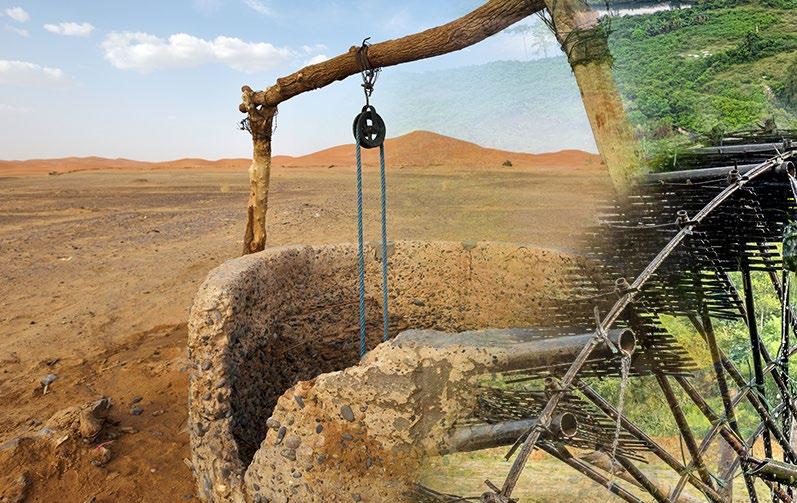
1 minute read
Tackling Water Complacency with New Technologies
Written By | MARTYN SHUTTLEWORTH
Clean water is something that many of us take for granted. We turn on the tap, fill a glass, and drink deeply. Of course, for billions of people on our blue planet, it is not so easy and fresh water is a scarce resource.
Advertisement
For many of us, it is too easy to sit back, believing that water shortages happen somewhere else. In reality, we pollute and overexploit our freshwater resources, and water shortages are something that will affect us all. We need water for drinking and cleaning, irrigating the crops we eat, supporting industry, and countless other uses that make modern life possible. These all deplete reserves and we need to find new sources or preserve the ones we have.
Water shortages ignore international boundaries and petty political bickering. It is something we all face and we must develop solutions for everyone especially in the face of climate change. With insufficient water for drinking and irrigation, disease, starvation, and even conflict become more likely.
Countering this needs action at all stages of the water cycle, increasing the amount of water available, purifying it, and making reusing water as much as possible. All of these can improve access to water, but this requires shaking off the political indifference that downplayed the significance of water for far too long.
For this issue, I have been fortunate enough to talk to innovative companies developing new technologies that can impact every stage of the cycle. These innovations can increase the availability and quality of water for everyone, helping us conserve what we have and using it more wisely.
In Greenland and Alaska, using glaciers as a source of freshwater, long discussed as a concept, is now becoming a reality thanks to Thomas Schumann and Project Greenland. In the US, often beset by poor quality drinking water, Ben Zvaifler of Cloud Water Filters discusses the next generation reverse osmosis filtration.
In Europe, where the EU is bringing in policies covering water reuse, Ines Larrea discusses Cimico and their ultra-efficient wastewater treatment. In Australia, Andrew Ward of Urban Utilities shows how a twostage algal process can clean wastewater and make more available for irrigation.
All of these technologies, and many more, give some grounds for optimism about a future with plentiful, clean water. While we undoubtedly face a global water crisis, can we reverse the situation and gradually secure this precious resource for the future? Maybe these new technologies really can tackle water complacency.










